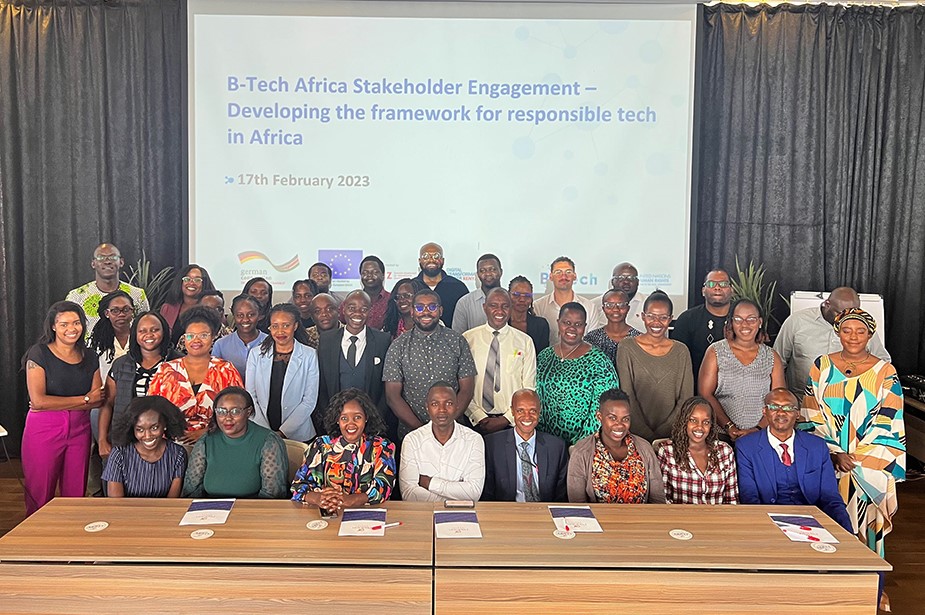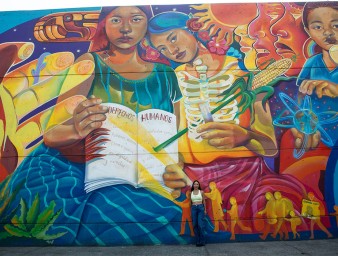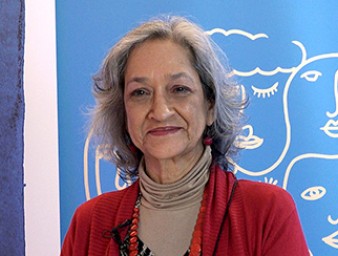Developing safer digital technologies for all
31 October 2023

New digital technologies have transformed the way people live in so many ways by creating economic growth and job creation, forging scientific advancements, empowering human rights activism and providing new opportunities in every part of society, according to Lene Wendland, Chief of UN Human Rights’ Business and Human Rights Unit. Digital technologies can also help drive progress for all the Sustainable Development Goals (SDGs), she added.
At the same time, the dark side of these very same innovations can pose severe risks to people’s rights including by infringing on privacy, through the spread of hate speech, misinformation, the undermining of the democratic processes, and the increase in online violence against women and LGBTI people, according to Wendland.
This is why it was vital for UN Human Rights, who takes the lead on business and human rights within the UN system, to create the Business and Human Rights in Technology Project (B-Tech Project) in 2019, as a way to address these issues by providing an authoritative roadmap for applying the UN Guiding Principles on Business and Human Rights (UNGPs) to the development and use of digital technologies.
The Office has been instrumental in advocating for holding business enterprises accountable for human rights abuses in line with the UNGPs. Twelve years ago, the UNGPs changed the expectations of how companies should do business. Before the Guiding Principles, the extent to which human rights applied to business was once a divisive and polarizing topic. The UNGPs quickly became the global standard for countries and companies to use as their universal manual to prevent, address and remedy human rights abuses connected with business activities.

In February 2023, UN Human Rights expanded the B-Tech Project into Sub-Saharan Africa at a launch event in Nairobi, Kenya. CREDIT: OHCHR
“The UNGPs led to game-changing progress on how to do business with respect for human rights and provides the perfect framework to prevent, address and remedy the potential and actual dangers related to digital technologies,” Wendland said.
A human rights framework for tech
Through the B-Tech Project, the Office works directly with companies such as Microsoft, Hewlett Packard Enterprise, Google, and Meta. The project not only engages with private partners, but with governments, academia, and civil society by providing a safe space to engage and learn from each other.
The four key areas the B-Tech Project focuses on are: addressing human rights risks in business models, human rights due diligence and end-use, accountability and remedy, and exploring regulatory and policy responses to human rights challenges linked to digital technologies. There is also a focus on the role of tech investors.
“
We can’t do this on our own. We need to have these strategic engagements and strategic partnerships for this project to have any impact.
“
Lene Wendland, Chief, Business and Human Rights Unit, UN Human Rights
Wendland welcomes Google for their strong commitment to work collaboratively through B-Tech to address human rights challenges including in the area of generative AI. The Google Human Rights Program advances Google’s company-wide strategy on civil and human rights.
“Our team is responsible for working across Google to develop our human rights policies, processes, and tools, including undertaking human rights due diligence, providing guidance to our product teams on potential risks and mitigations, and more,” said Shahla Naimi, Deputy Global Head of Human Rights at Google.
In Brussels, the Google Human Rights team recently joined a meeting that was hosted by B-Tech and the Global Network Initiative to explore AI, human rights and the evolving regulatory environment alongside civil society organizations, academics, policymakers and other companies.
“At Google, we have been conducting human rights due diligence on AI products for years,” Naimi said. “We do this work to identify actual and potential adverse impacts and opportunities for appropriate actions to avoid, prevent, or mitigate such impacts. Our due diligence efforts on generative AI are a continuation of those long-term efforts.”
For instance, Naimi said, Google conducted product-specific due diligence to inform a rights-based approach to future products of services that will integrate or deploy generative AI of a significant scope, scale and the likelihood of impact. Other work included product-agnostic analysis of generative AI that takes into consideration long term human rights-related risks for people and society, to inform Google’s understanding of potential harms and opportunities across their products, she added.
Naimi said the Office has provided instrumental guidance, support and feedback as they work to meet their human rights commitments and implement the UNGPs across their business. It’s also a helpful forum to engage with peers and civil society on the challenges and opportunities of undertaking human rights due diligence across the technology sector.
"UN Human Rights not only provides us with authoritative guidance on implementing the UNGPs, but it also provides us with a venue where we can learn alongside other companies in important information-sharing and learning calls,” Naimi said. “The B-Tech Community of Practice, for instance, helps us dig into thorny scenarios with other companies and get practical guidance from UN Human Rights in the process.”
Accountability
The Business & Human Rights Resource Centre (BHRRC), a B-Tech civil society partner, tracks over 10,000 companies worldwide with its core focus being the intersection of businesses and their impact on human rights.
Gayatri Khandhadai, Head of Technology and Human Rights for BHRRC, is helping to promote the implementation of the UNGPs in tech companies worldwide. As a digital rights defender, the work she is doing with the B-Tech Project is deeply personal to her as she has witnessed the impact of online violence and privacy violations firsthand and has worked with many human rights defenders who have been targeted.
“There is a complete sense of helplessness that washes over when we are faced with online attacks. Neither the state nor companies are swift enough, even when willing, to prevent harm,” she said.
Her team monitors the news consistently and keeps track of civil society reports of allegations of human rights abuse being made against tech companies across different sub sectors within the tech space.
“The tech sector is relatively younger than the other sectors, so there is a lot of reckoning still going on,” she said. “It often feels like States are constantly just trying to catch up with these companies. Too often this means the policy response to the tech sector is reactive and not necessarily well thought out. In some ways the accountability cycle that other sectors have gone through is only now playing out for the tech sector. There's a learning curve for tech companies in figuring out how to hold themselves accountable.”
Khandhadai feels the B-Tech Project is making the tech space safer for people in their everyday lives.
“The way they articulate standards and expectations of companies are rooted in international law, this in turn helps us with advocacy,” she said. “They are enabling conversations among tech companies and civil society on key business and human rights challenges at the international level. There are not many spaces where this happens. I find their analysis and guidance to be ground-breaking and collaborative.”



